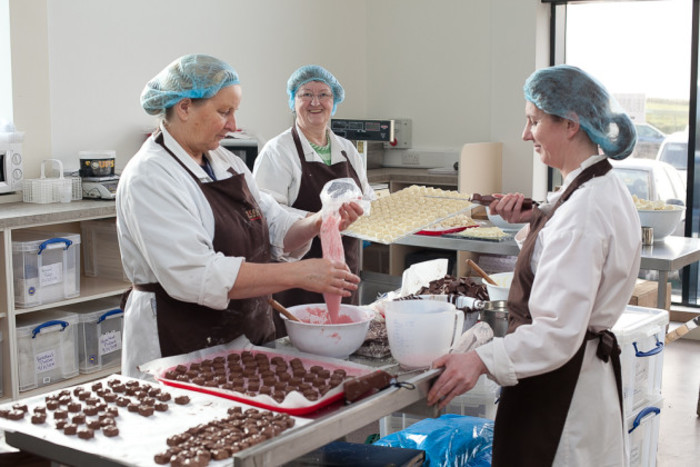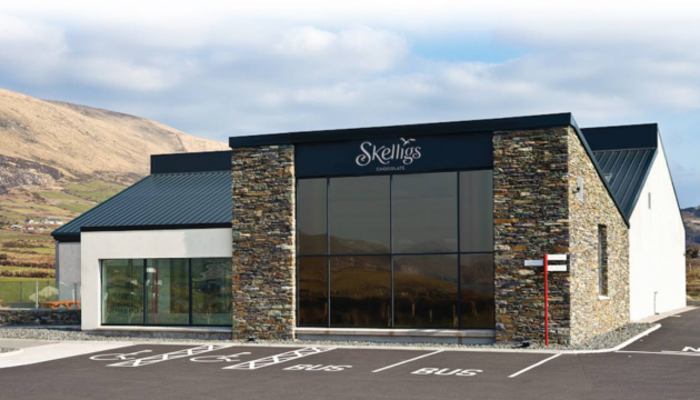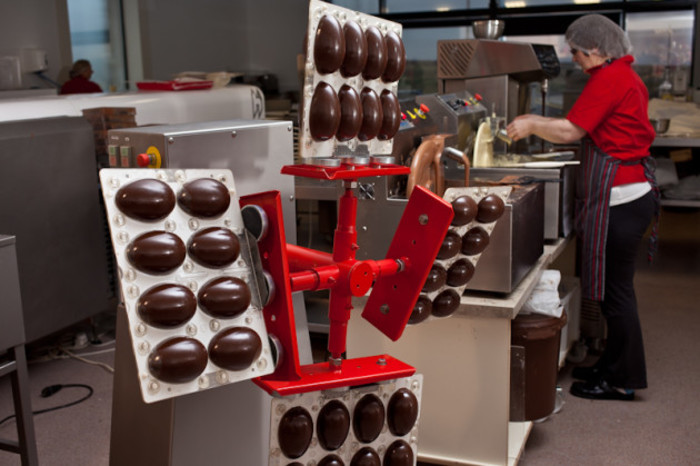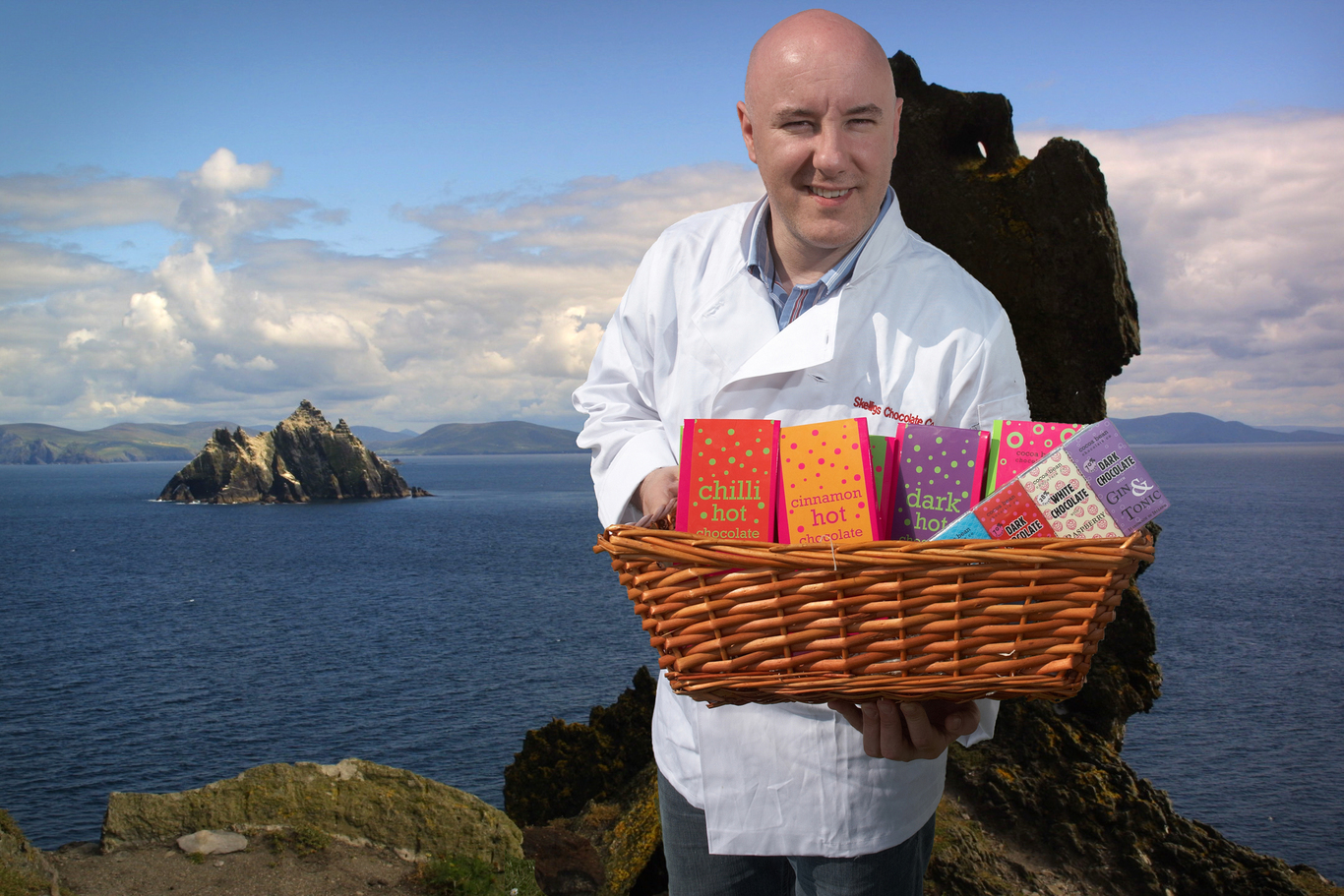'I woke up to 27 missed calls and 47 messages. I knew something was up'
The owner of Skelligs Chocolate had a crash course in rebuilding a business after a major fire in 2010.
IN NOVEMBER 2010, my business went up in flames. I don’t mean we had a bad month of sales – our factory literally burned to ground. And I didn’t have a crisis management plan.
Everybody, including myself, was like a headless chicken. Is everyone out of a job? Do we have to shut up shop? Nobody knew what was the next step.
I bought Skelligs Chocolate in 2004 and over the next six years I went in at the ground floor and learned how to do every aspect. In that time, I spent some money on extending the premises and everything was going along nicely.
When the fire happened, I was over in New York and my phone was on silent. In the morning I woke up and there were 27 missed calls and 47 messages. I knew something was up, but didn’t know what it was.
I rang my manager and she said to me, “Colm, there’s been a bit of a fire in the factory.” I asked her to what extent and she explained to me that the building is gone.
Like a lot of small business owners, I was very used to being in control. So I look back now and think it’s crazy how impotent I felt being in a different continent and timezone.
I came back two days later and went down to the factory. It was like a scene from a funeral. Staff, locals, gardaí and insurance people were there picking through the remains.
I had no notion of what had happened or what to do. I knew someone who had been through something similar before and they gave me some tips about getting a loss adjuster, talking to the insurance people and chatting with the gardaí.
I can’t tell you what happened in the next month or so, I just went through the mechanics of it all day by day.

Rising from the flames
At first I didn’t appreciate my responsibility to staff. We had around 12 staff at the time and they had mortgages, car loans and other things to pay off. Even though I had no idea what I was going to do, I really had to take a step back to understand their concerns and tell them how I was going to fix this.
At the time I had no physical tie to where our factory is. It was in a very remote part of Ireland and part of me said, “Why would I stay here? What’s to stop me taking the insurance and heading for the bright lights?”
But during that month I got offers of support that blew me away. An unemployed carpenter down the road offered some help, a large hotel operator in Killarney told us we could use their spare kitchen and even some of our competitors said they would make some products for us.
I’ve always maintained the Irish don’t handle success very well, but we certainly rise up to the occasion in the face of adversity. That support made me realise the Skelligs were the home of the business. So we decided to bounce back, and I set myself a target of being up and running again within a year.
 The new factory in Ballinskelligs
The new factory in Ballinskelligs
Next steps
We could have just replaced like for like, but we decided, feck it, let’s throw the kitchen sink at this and do it properly.
After initially having to let the staff go, we took them all back on in February the following year when we found a temporary location in a closed supermarket in Cahersiveen and started manufacturing again.
It all started to come together then. The insurance company paid out the money, but they only paid out like-for-like and we wanted to build the business back to be four times the size, which cost three times more.
So I begged, borrowed and stole, and within a week of my deadline we were physically back in our new factory and ready to work.
Learning experience
It was a horrible year, but in hindsight what happened was of huge benefit. I’m not saying I would go through it all again, but I look at it as what the penguins from the Madagascar movie call a ‘catastrotunity’.
It gave us the blank sheet to build the business back. We had six years of understanding the business and knew what we wanted to do better.
One big thing was re-examining who we are as a business. I regarded ourselves as a chocolate manufacturing company, but now I would look at it as a food tourism business. Sometimes you need the full stop to help you think if you’re going on the right path.

There were a couple of other big things to come out of this crisis for both myself and the business. Number one was we now have a crisis plan.
It has also helped me kick a habit a lot of small-business owners fall into. I used to try and do everything myself and this simply wasn’t sustainable. You literally run out of hours in the day and your health suffers.
What I’ve done in the last year is to set up a management team in-house, and their role is to make me redundant in the business.
This team gives other people more responsibility and ownership over certain aspects of the business and makes it less likely the business will be run into the ground.
It has really allowed me to take a step back from day-to-day workings of the business and at the same time know we are prepared for whatever comes our way.
Extra precautions
I now go by the adage, “When would you be crying?”. If you lost a month’s worth of business data, would you be crying? Yes. What about two days of data? Yes. How about a day? If the answer to this is still yes, then you need to be backing up everything on a daily basis.
Since the fire, all of our mission-critical data is stored in the cloud and virtually every computer and tablet is a dumb terminal, which means it doesn’t matter if it breaks because we can just replace it and be up and running within an hour.
We have a monitored alarm, remote-access CCTV, we have installed extra capacity for the fire hydrant and we run more-regular-than-required fire drills.
Our turnover went to zero and it took us about three or four years to get back to a comfortable level. It’s only in the last two years that we’ve begun to exceed the revenue we were making before the fire.
Unfortunately I had to learn through adversity what the best practices are. Now, barring jets crashing into us, our crisis plan is robust.
Colm Healy is the owner of Skelligs Chocolate. This article was written in conversation with Killian Woods as part of a series on business mistakes and what can be learned from them.
If you want to share your opinion, advice or story, email opinion@fora.ie.






